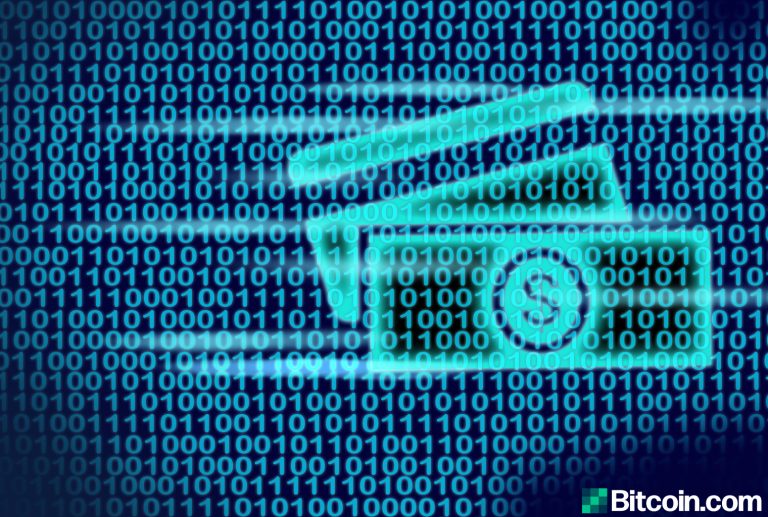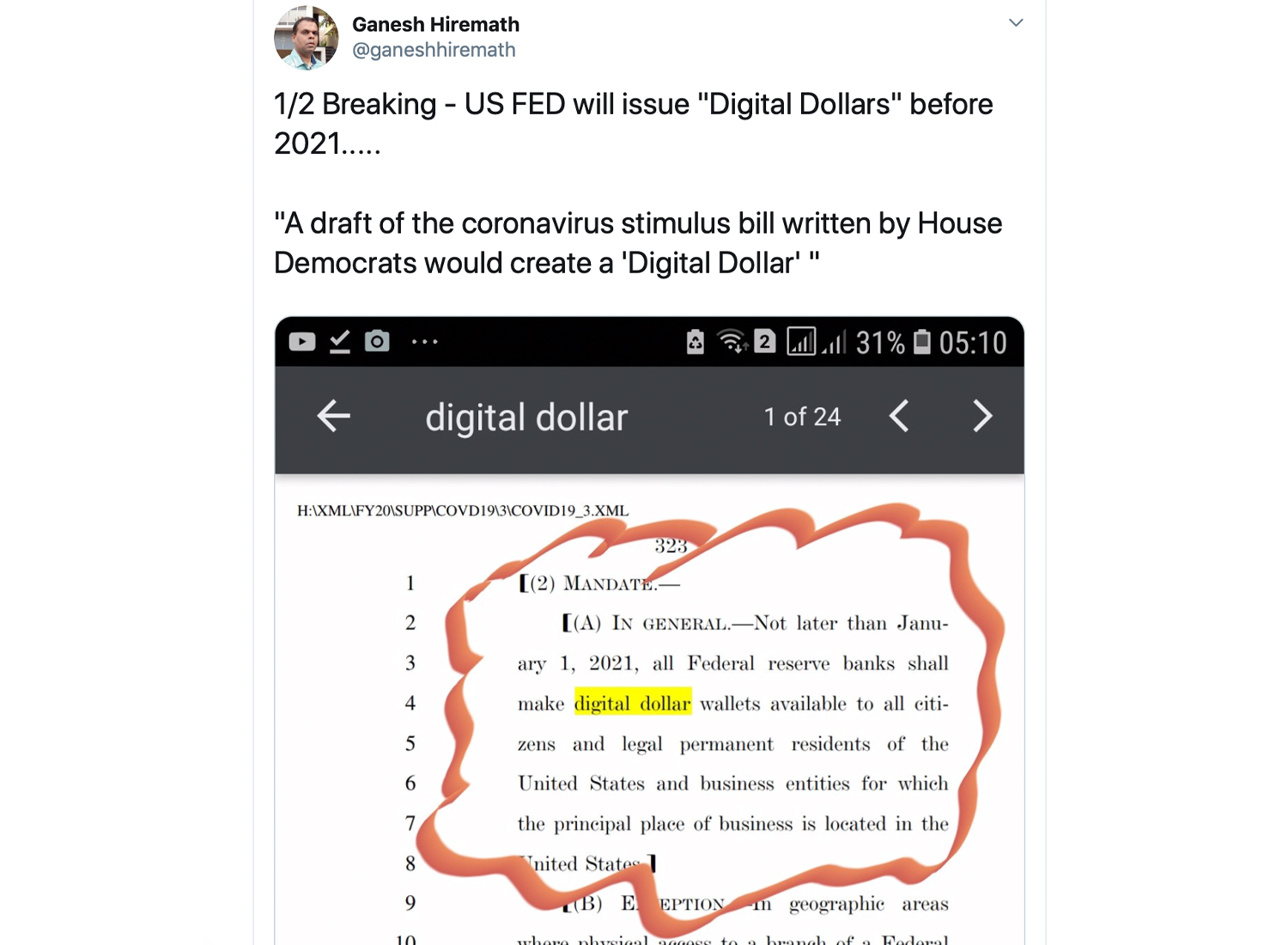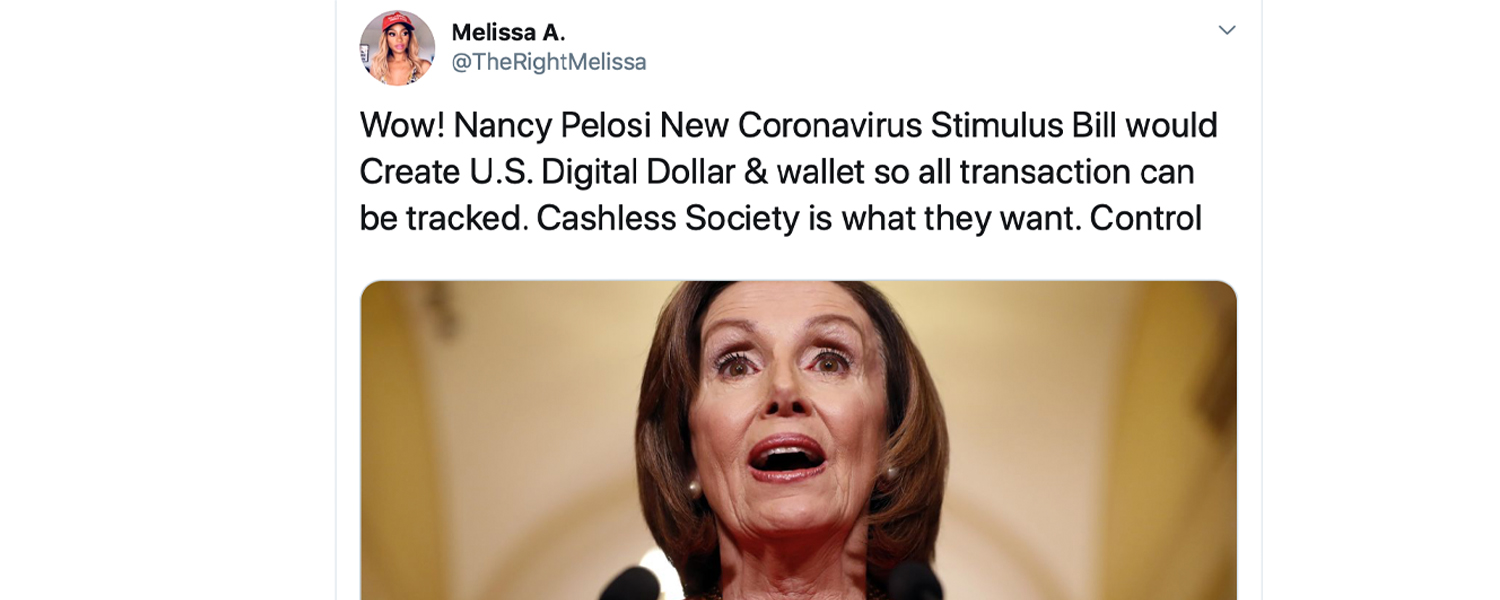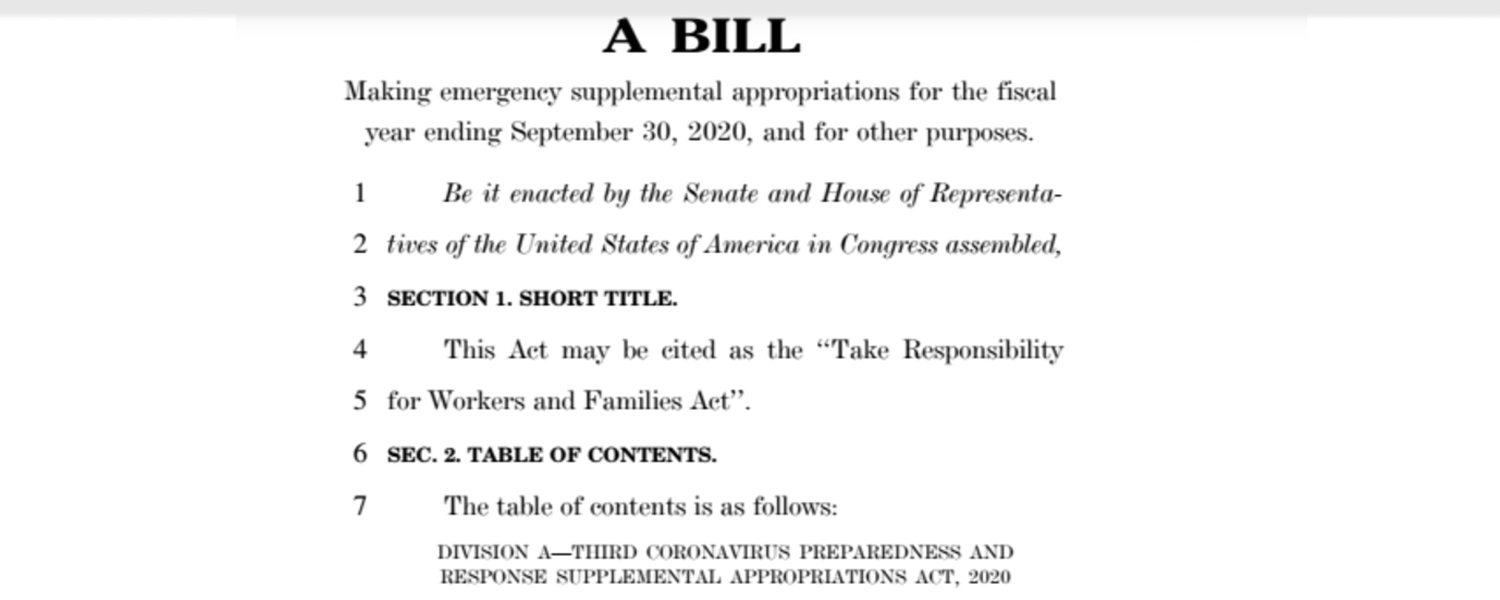Shelter-in-Place for Cash? 2 Bills Submitted by US Congress Mention ‘Digital Dollars’
Publikováno: 24.3.2020
 During the last few days, members of the U.S. Congress have been trying to pen a stimulus plan to help the American economy. Since then, a few bills have been submitted by representatives and two particular proposals House democrats have tabled talk about a “digital dollar” and “digital ledger entries.” Following the submission of the […]
During the last few days, members of the U.S. Congress have been trying to pen a stimulus plan to help the American economy. Since then, a few bills have been submitted by representatives and two particular proposals House democrats have tabled talk about a “digital dollar” and “digital ledger entries.” Following the submission of the […]
The post Shelter-in-Place for Cash? 2 Bills Submitted by US Congress Mention ‘Digital Dollars’ appeared first on Bitcoin News.

During the last few days, members of the U.S. Congress have been trying to pen a stimulus plan to help the American economy. Since then, a few bills have been submitted by representatives and two particular proposals House democrats have tabled talk about a “digital dollar” and “digital ledger entries.” Following the submission of the “Take Responsibility for Workers and Families Act,” a revision was filed that does not contain the “digital dollar” section.
Also read: #NotDying4WallStreet – Twitter Trends Show People Are Fed Up With Wall Street, Banks and Oligarchs
Two Congressional Bills Speak of Digital Dollars and Ledger Entries Kept by the Fed
News.Bitcoin.com recently reported on the Michigan lawmaker Rashida Tlaib’s “Boost Act” which aims to give American citizens $1K per month if Congress approves the idea. Tlaib’s concept was derived from the framework behind Modern Monetary Theory (MMT) and allegedly the funding would not cause any debt. The Michigan democrat’s bill is also bolstered by its co-author, Modern Money Network’s Rohan Grey, and bureaucrats like Bernie Sanders and Alexandria Ocasio-Cortez (AOC) approve the act.

Following Rashida Tlaib’s proposal, two more bills have been submitted that offer a similar approach. The “Financial Protections and Assistance for America’s Consumers, States, Businesses, and Vulnerable Populations Act” and the “Take Responsibility for Workers and Families Act” (TRWF) both contained phrases and terms that hint at a “digital dollar.” However, shortly after the “digital dollar” section in the TRWF act made headlines, it was removed.

In fact, both bills look like they were authored by the same writer. Just before the “digital dollar” section within the TRWF bill was deleted it read:
The term ‘digital dollar’ shall mean a balance expressed as a dollar value consisting of digital ledger entries that are recorded as liabilities in the accounts of any Federal Reserve bank; or an electronic unit of value, redeemable by an eligible financial institution (as determined by the Board of Governors of the Federal Reserve System).
World Economic Forum (WEF) head of blockchain, digital currency and data policy, Sheila Warren sent a statement to news.Bitcoin.com about the idea of a “digital dollar.”
“While it is always exciting to see openness to innovation on the part of the United States government, such an initiative would require careful consideration of digital identity and security and would require cross-sector engagement, including from civil society and technical experts beyond the financial system,” Warren told our newsdesk. “The use case for a US Central Bank Digital Currency is not entirely clear, and a CBDC in any country is not a silver bullet solution to the problems of financial inclusion, which are deeply complex.” The WEF author added:
On the other hand, increased digitization of the economy could result in a faster response to stimulus and enable readiness for future crises. Overall, it’s encouraging to see further evidence that the government is paying very close attention to the technology space and exploring fitness for purpose.
Central Bank Coins, Stablecoins, and a Cashless Society
All three bills do not contain language that refers to a blockchain or digital currency like bitcoin. However, the three bills have a lot of people speculating because the past few years the research and development of central bank digital currency (CBDC) has been very popular. Moreover, stablecoins have been thriving as well and people think that a concept like tether (USDT) could help governments like the U.S. leverage a blockchain. Besides the blockchain and cryptocurrency speculation, the digital part of these bills reminds people how the U.S. and much of the world is going cashless. Speculators assume that the current economic storm could be leveraged to reset the entire monetary system toward cashless finances.

Congress is hoping the stimulus package will be fully approved on March 24 and House Speaker Nancy Pelosi told the media there is “real optimism” American representatives can come to a decision on Tuesday. Meanwhile, U.S. citizens are not holding their breath waiting for this deal and many Americans will be pretty upset if politicians bail out Wall Street again.
What do you think about the bills talking about a “digital dollar” and “digital ledger entries”? Let us know in the comments section.
The post Shelter-in-Place for Cash? 2 Bills Submitted by US Congress Mention ‘Digital Dollars’ appeared first on Bitcoin News.
